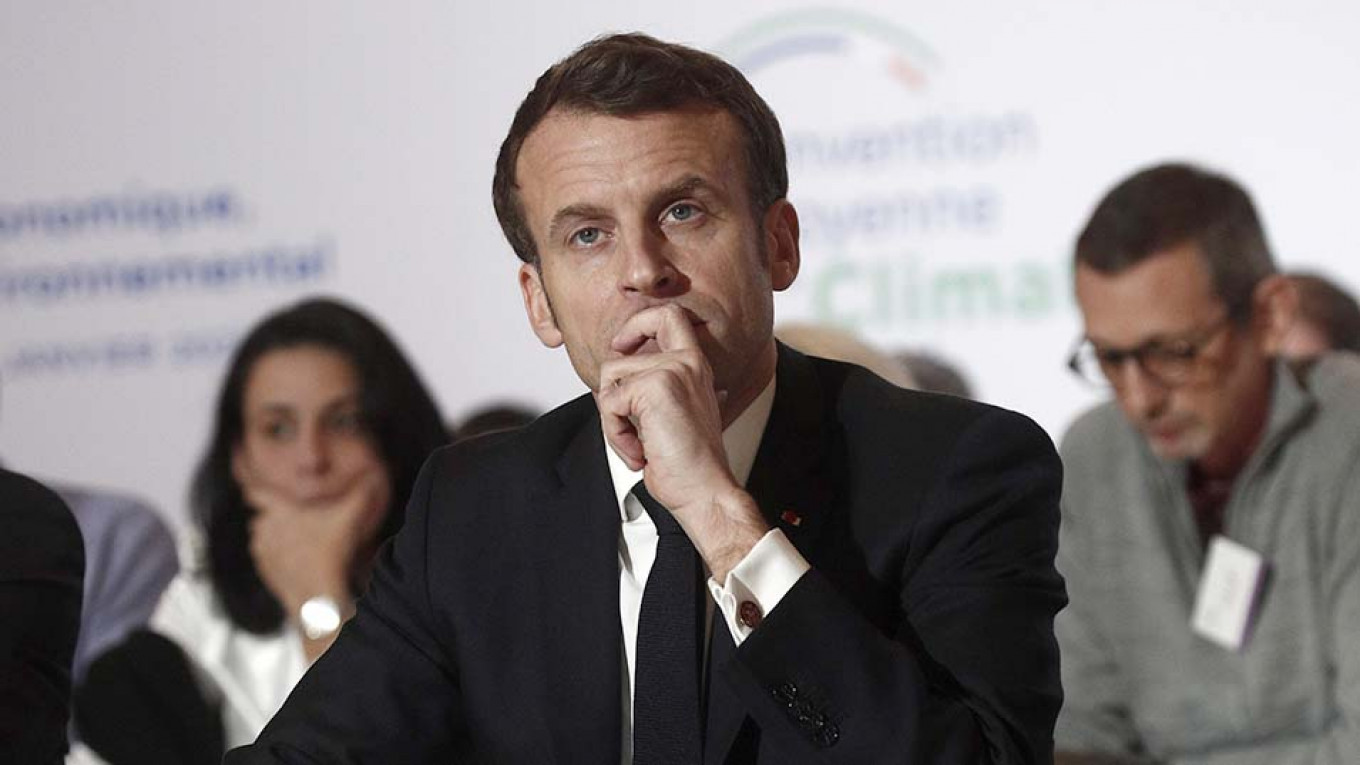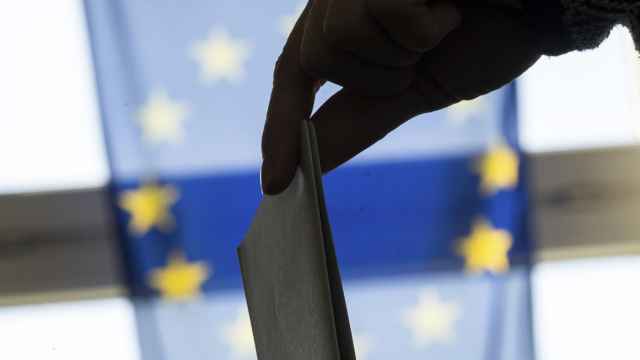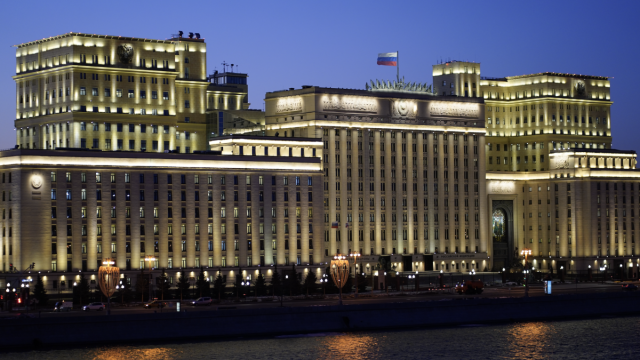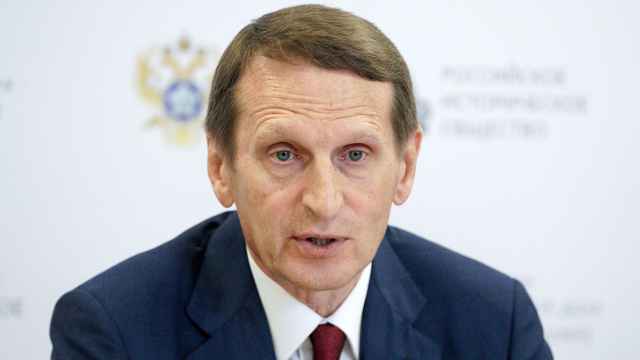State media in Russia is reveling in the scandal of an exiled Russian activist in France who shared a sexually explicit video that punctured the political career of one of Emmanuel Macron’s top allies.
Petr Pavlensky and his partner, the woman who reportedly received the explicit messages from Benjamin Griveaux that were released last week, are being questioned as part of an investigation into the videos after Griveaux filed a complaint, AFP reported, citing the French prosecutor. The 42-year-old married father of three quit Friday as the ruling party’s candidate for mayor of Paris.
The episode comes as Macron is trying to improve Europe’s relations with Russia, upsetting some of France’s partners within the bloc.
While French government spokeswoman Sibeth Ndiaye said the sophisticated way the Russian artist carried out the leak suggested he hadn’t acted alone, in Moscow there was a scathing comment about France’s decision to grant political asylum to Pavlensky in 2017. The videos appeared to show Griveaux sending messages with an auto-destruct function.
“The joke is over. Pavlensky has gone from being an amusing character to ‘Kremlin agent’,” the Vesti state-run channel entitled a report on the affair.
Franco-Russian dialogue
President Vladimir Putin, who’s seeking to ease the worst East-West tensions since the Cold War sparked by his annexation of Crimea and military intervention in Ukraine in 2014, has responded eagerly to Macron’s offer of strategic dialogue. At the same time, the French leader criticized Russia for continuing to try and destabilize Europe at this weekend’s Munich Security Conference.
Russian Foreign Minister Sergei Lavrov on Monday praised Macron for “true political and geopolitical vision, pragmatism and readiness for dialogue” despite his “reservations” about Russia.
Pavlensky, known for performances that included nailing his scrotum to Moscow’s Red Square in 2013, has been based in France since obtaining asylum. He served 11 months in a French prison for setting on fire the facade of the Bank of France.
With the private life of politicians usually off-limits in France, the Griveaux episode drew condemnation across the French political spectrum, including from his adversaries.
But in his flagship Sunday news show, leading pro-Kremlin TV anchor Dmitry Kiselev presented Pavlensky as a fighter against politicians’ hypocrisy, citing the artist’s justification for the action against Griveaux to unmask him for campaigning falsely on family values.
“In Russia, Pavlensky could do whatever he wanted and be applauded for it in Europe. But when he stepped over the mark in France, that’s what he got,” he said.
Political asylum
Another commentator on state TV mocked a call from a lawmaker in Macron’s party to strip Pavlensky of political asylum and send him back to Russia. “For such a crime, you can’t take away the political asylum that you rushed into giving him. You got what you asked for,” he said.
When he was the spokesman for Macron’s government, Griveaux banned Russian outlets RT and Sputnik from covering presidential events, saying they were not media but propagandists funded by Russia. Macron also said his 2017 presidential campaign was a victim of Russian interference.
Pavlensky’s legal adviser and political activist Juan Branco suggested Saturday there may be other videos. Branco praised WikiLeaks’ Julian Assange in a book and has been a staunch supporter of the French grassroots Yellow Vest movement.
Still, in contrast with Ndiaye’s comments, France’s junior minister for digital affairs Cédric O told France Info radio that “at this stage” he had “no information that leads me to believe that there could be anything other than a personal act” in the Griveaux affair. “We have no proof or any indication that Russia is involved,” O added.
Vladimir Frolov, a former Russian diplomat who’s now a foreign policy analyst in Moscow, concurred. “There is no Russian role (in the Griveaux affair),” he said. “But we are proud of our artists of world renown.”
A Message from The Moscow Times:
Dear readers,
We are facing unprecedented challenges. Russia's Prosecutor General's Office has designated The Moscow Times as an "undesirable" organization, criminalizing our work and putting our staff at risk of prosecution. This follows our earlier unjust labeling as a "foreign agent."
These actions are direct attempts to silence independent journalism in Russia. The authorities claim our work "discredits the decisions of the Russian leadership." We see things differently: we strive to provide accurate, unbiased reporting on Russia.
We, the journalists of The Moscow Times, refuse to be silenced. But to continue our work, we need your help.
Your support, no matter how small, makes a world of difference. If you can, please support us monthly starting from just $2. It's quick to set up, and every contribution makes a significant impact.
By supporting The Moscow Times, you're defending open, independent journalism in the face of repression. Thank you for standing with us.
Remind me later.






